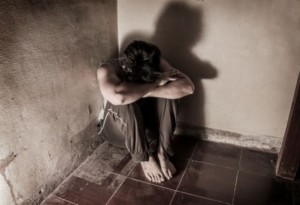PARIS, France – A form of mental training which helps people recognize the onset of depression, and control it, works as well as anti-depressants in preventing relapse, researchers said Monday.
Dubbed Mindfulness-Based Cognitive Therapy (MBCT), the method may offer a welcome alternative for people wishing to avoid long-term use of anti-depressants, which can have unpleasant side effects like insomnia, constipation and sexual problems, said a study in The Lancet medical journal.
In a two-year trial with 424 depression sufferers in England, researchers found that MBCT users faced a “similar” risk of relapse to those on anti-depressants.
New choice
The method was not more effective than drugs, as many had hoped, but the findings nevertheless suggested “a new choice for the millions of people with recurrent depression on repeat prescriptions,” said study leader Willem Kuyken, a professor of clinical psychology at the University of Oxford.
Depression is often a recurring disorder, and people with a history of the ailment are frequently placed on a long-term course, typically about two years, of anti-depressants.
Previous research had shown that anti-depressants can reduce the risk of relapse by up to two-thirds when taken correctly, but dosage adherence is hugely variable.
Without treatment, as many as four out of five people relapse at some point, Kuyken said in a statement.
Accept negative feelings
The side effects, however, have fuelled interest in alternative methods like MBCT.
It entails training depression sufferers to accept that negative feelings and thoughts are likely to recur, to recognize them when they do, and deal with them effectively rather than trigger a depressive spiral by dwelling on the gloomy.
The new study claims to be the first-ever, large-scale comparison between the efficacy of MBCT and anti-depressants.
The trial volunteers were randomly divided into two groups. Half continued taking their medication while the rest phased out the drugs in favour of MBCT.
Daily practice
The training involved eight group sessions of two hours and 15 minutes each, with daily home practice. Participants were given the option of four follow-up sessions over the following 12 months.
All 424 volunteers were assessed for a period of two years with a diagnostic tool called the “structured clinical interview”, which measures mental state.
The MBCT group had a 44-percent relapse rate, the researchers found, compared to 47 percent in the group taking anti-depressants.
“As a group intervention, mindfulness-based cognitive therapy was relatively low cost compared to therapies provided on an individual basis,” study co-author Sarah Byford from King’s College London said.
